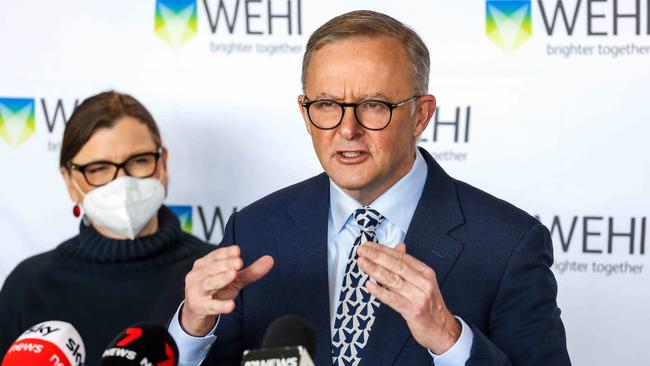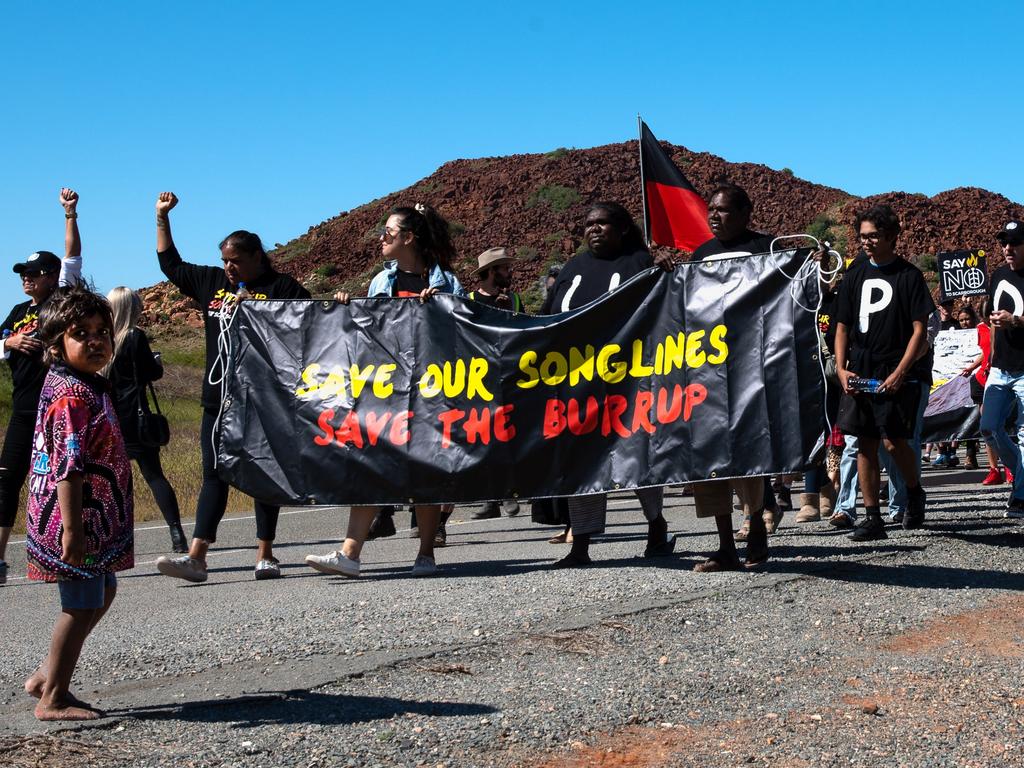Anthony Albanese: coal ban won’t cut emissions
The Greens’ push to ban new coal and gas could increase global emissions – as Australia’s trading partners would source lower-quality resources from other countries – Anthony Albanese says.
The Greens’ push to ban new coal and gas projects would do nothing to lower global emissions – and could potentially increase them – as Australia’s trading partners would source lower-quality resources from other countries, according to Anthony Albanese.
Ahead of a parliamentary stoush on the government’s climate change bill next week, the Prime Minister said the Greens had no detail on how to reach their 75 per cent by 2030 emissions reduction target and “the idea that you just shut things down” was not the way to build consensus on taking action on the issue.
Mr Albanese said Labor’s position would remain that new coal and gas projects could proceed if they stacked up financially and passed environmental approvals, with the future of the industry to be dependent on international demand.
“Policies that would just result in a replacement of Australian resources with resources that are less clean from other countries would lead to an increase in global emissions, not a decrease,” Mr Albanese told The Australian. “The Greens’ position is aimed at politics rather than what’s necessary, which is a recognition that Australia needs to do its part but doing its part is ensuring that the global emissions decrease.
“That’s why in our Powering Australia Plan, very explicitly, our policy says that Australian businesses that are competing against foreign businesses shouldn’t have a more onerous duty than they do because that just leads to replacement.

“That doesn’t achieve a reduction in emissions – that just produces less economic activity in Australia.”
Australia’s thermal coal is generally more efficient and less polluting than coal produced by other major exporters such as Indonesia, according to the Minerals Council of Australia.
Labor needs the support of the Greens to pass the climate change bill through parliament and enshrine its target to lower emissions by 43 per cent on 2005 levels by 2030 in law. On Wednesday, Greens leader Adam Bandt said his partyroom had met and was ready to begin formal negotiations with Labor.
The party is concerned with the “adequacy” of the 43 per cent target, the lack of teeth to enforce the emissions reductions and the refusal of the government to ban new coal and gas developments.
Mr Bandt has also issued concerns the bill will lock in 43 per cent as a ceiling and not a floor – a claim rejected by the government – and is pushing for a “ratchet mechanism” which would allow the government to increase the target without new legislation.
Mr Bandt said the Greens were concerned “that the government’s desire to open new coal and gas mines will make the climate crisis worse”.
“Europe is burning and Australia’s environment is collapsing, but the government wants to open new coal and gas mines. You don’t put the fire out while pouring petrol on it,” Mr Bandt said.
“As well as the weak target that means more fires and floods, the Greens are concerned that the bill as drafted is a barrier to government lifting the weak 43 per cent targets, isn’t ‘Dutton-proof’ against a future government that wants to lower the targets, doesn’t require government to actually do anything to cut pollution and allows more coal and gas.”
Speaking to The Australian, Mr Albanese said his government’s climate change package had been backed by business and environmental groups and was “an opportunity to end the climate wars”.
“Our position is that is a floor not a ceiling,” Mr Albanese said.
“But you need to take business and communities with you on the journey.
“The idea that you just shut things down is not a way to bring more support. It’s a way in which you’ll have more division. And the division has not served Australia’s interests and has not served the interests of the Australian environment.
“What we need to do is to have the implementation of a serious plan, which we have. And some of the rhetoric that is there, that’s been there from some of the critics, is just a further recipe for ongoing argument.
“If people have sensible amendments, we’ll look at it. But we are not going to look at a figure. We’re going to have the figure that we have a mandate for.
“People do want action on climate change, but they also want to know that it’s achievable. And our plan is.”
Mr Albanese said the Greens had a 2030 emissions target “but they don’t have a plan to do it”.
“You can come up with whatever figure like if you if you just pluck out a figure and don’t have a plan to get there,” he said. “What we did was develop a plan including transmission, including an electric vehicles plan, including community batteries, including a use of the safeguard mechanism. All of the elements of our Powering Australia Plan … will reduce emissions by 43 per cent by 2030.”
Under the Paris Agreement, Australia is not responsible for the carbon emissions from overseas power generators using our exported coal and gas. Economists and energy analysts expect international demand for coal and gas to gradually decline over the coming decades.
Australia’s major customers – including Japan, India, South Korea and China – all have net-zero commitments.






To join the conversation, please log in. Don't have an account? Register
Join the conversation, you are commenting as Logout